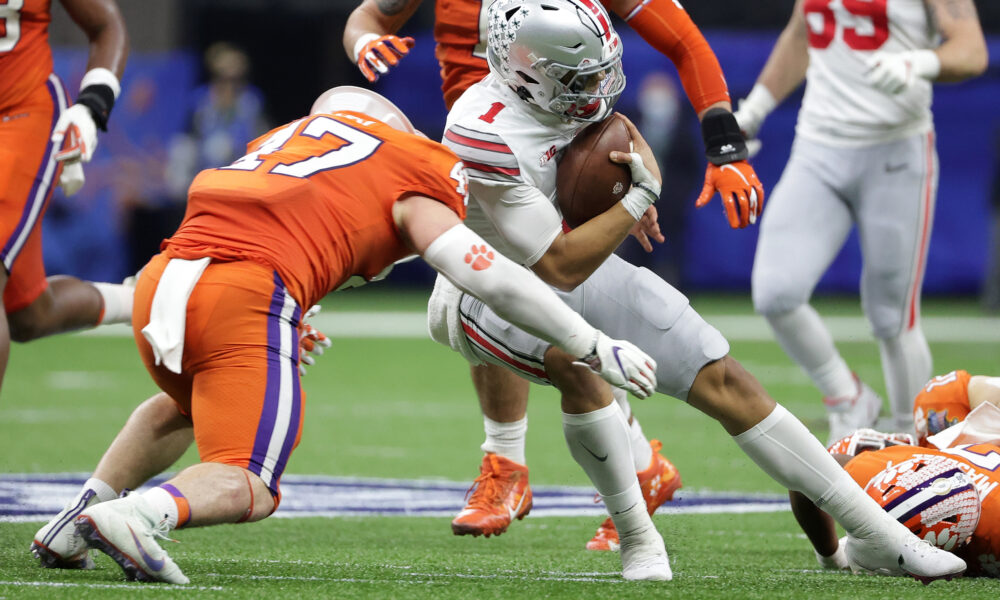Ohio State dominated Clemson on its way to a 49-28 Sugar Bowl win and clinched a berth in the College Football Playoff National Championship Game to face No. 1 Alabama.
The Tigers allowed 639 yards of total offense and Buckeye quarterback Justin Fields looked outstanding as he completed 22-of-28 passes for 385 yards with six touchdowns and one interception.
In the second quarter, a pivotal call swung all of the momentum to Ohio State and the game pulled out of the Tigers’ grasp when Clemson linebacker James Skalski was called for targeting Fields and was ejected from the game with 6:04 to play in the first half.
Skalski made it clear he disagreed with the ruling on the field and feels the NCAA needs to reevaluate what it means to target a defenseless player.
“Not a shot, I know they are just trying to protect everybody. But I don’t think there has ever been a targeting call like that one and I think there needs to be some reevaluation of how that is enforced,” the graduate said. “I felt like I had a good hit and it was time for the next play and then they said they were reviewing it and it was targeting.”
On the play it was third-and-13 with just over six minutes to play in the first half, Fields ran for 11 yards and Skalski met him with force.
The flag was not thrown as Skalski hit a spinning Fields in the rib cage with his helmet. But, the play was reviewed and the officials in the booth determined Skalski targeted Fields and he was ejected from the game.
Two plays later Fields delivered a nine-yard touchdown pass to Chris Olave with 5:12 left in the half to take a 28-14 lead. Clemson would not get within one score of the Buckeyes for the remainder of the contest.
Clemson head coach Dabo Swinney said Skalski was just making a football play and had no intent but was just making a tackle and that the call was unfortunate.
“The letter of the rule or technicalities of the rule, they’re going to apply it,” Swinney said in his postgame press conference.
Skalski has yet to make a decision as to whether or not he will return for an extra year of eligibility granted by the NCAA in light of the COVID-19 pandemic and shortened season.
